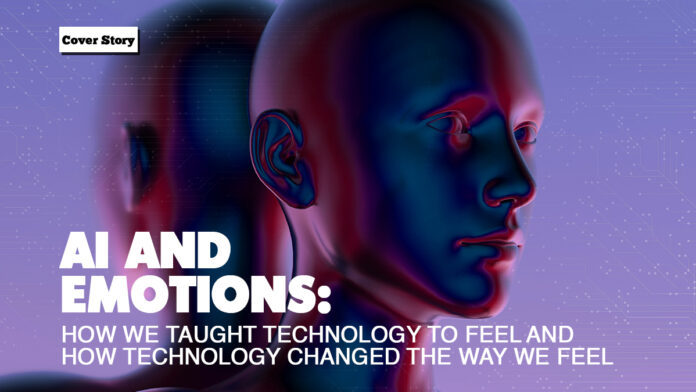Artificial Intelligence and Machine Learning have rapidly developed in recent years. Large language model AI took the stage last year, demonstrating how AI can be trained to understand us. Yet, there is still something missing from the current AI and human interaction: emotion.
One of the limiting factors in AI is that, by default, it is merely a machine trained to respond to whatever it was trained upon. Even AI with highly advanced machine learning is limited to only providing what is asked without fully understanding why. This lack of connection still separates man from machine, and why man feels something missing when interacting with AI.
Emotional AI and decoding the human connection
To address this missing element, in 1995, researchers at MIT started looking at “Affective Computing.” Then MIT Media Lab professor Rosalind Picard described Affective Computing as “computing that relates to, arises from, or deliberately influences emotions.” Now, it is also known as Affective AI and Emotional AI.
Emotional AI, simply put, is a subset of AI that analyzes human emotion. It utilizes various data like language, voice/ audio, and other cues to determine how to react to certain things. Emotional AI is already part of our world, with its most common use found in marketing. Emotional AI is used for product review analysis and recommendation tailoring. They’re among the AI tools behind some of your shopping algorithms and even video recommendations.

The loneliest generation
Have you ever heard the term “the loneliest generation” to describe Gen Z? In a 2019 survey, it was found that 73% of Gen Z, those currently 11-26 years old, felt lonely sometimes or always. Most of the loneliest respondents were those in the workforce or entering the workforce, ages 18-23 (back in 2019).
This is an ironic sentiment, as Gen Z is considered the most internet-savvy generation. Many would argue that Gen Z is the first generation whose lives have been entirely online, with mainstream internet kicking off just a few years before their birth.
When the internet took off, it was an unprecedented highway to information and communication. It broke barriers by providing new methods of communication, from chat and message rooms, instant messaging apps, and social media to the facilitation of mass adoption of video calls and conferencing.
It’s this communication highway that allowed us to adapt during the COVID-19 pandemic and continue under the new normal. While the world has slowly returned to pre-pandemic status, our reliance on these online communication tools persists.
In the study, 71% of those feeling lonely were heavy social media users, another irony when the platform was supposed to further connect individuals.
The overreliance on technology, particularly social media, has changed the way we interact. Gen Z is the first generation to depend solely on online communication. Perhaps this reliance on online communication has also made them a generation that’s socially disconnected as compared to earlier generations.
Loneliness has gotten so bad that the US has deemed it an epidemic. Doctors and other health professionals warn that loneliness and social disconnection are physically unhealthy, equivalent to smoking 15 cigarettes a day.
Can AI save the loneliest generation?
Yet the problem of the loneliest generation will not be limited to just Gen Z. Many experts predict that under prevailing conditions, the epidemic will spread to more individuals. As we rely more heavily on technology to move the world, we are also slowly disconnecting with more people.
This continued cycle raises the question, “Can Emotional AI help?” There are already some attempts. AI therapists utilizing Emotional AI are increasingly available. These AI therapists do help in a small way, allowing individuals to learn more about themselves and offer mental health support and, in some cases, diagnostics.
However, these AI therapy solutions are not without risk. Human nature is complex, and there’s a possibility that what AI offers may not be right for you. There’s also the so-called AI bias, with AI not trained about certain races’ data sets. For example, a person of color or different ethnicity will have different circumstances and reactions to stimuli than the typical white American.
There’s also the shifting of reliance. AI chatbots have grown so good at replicating human conversation that we forget they’re AI in the first place. Some individuals could shift their need for connection to the AI itself, further isolating themselves from a genuine human and social connection.
Finally, there are privacy concerns when relying entirely on AI. Behind these AI are the organizations that train and program them. While some have good intentions to improve human lives, there is still the risk of violating users’ privacy as they share intimate details about themselves with the AI.
At the end of the day, while AI can be a tool to process our emotions, it remains just that – a tool. Humans are complex individuals, and part of that complexity is our need for genuine social connections. Genuine connection can’t be found just by scouring the interweb or through digital communication. It is built upon friendship, trust, and a real organic touch. While we can find connections online, only a few are genuine enough to be carried off offline.
Words by Gabriel Pe
Also published GADGETS MAGAZINE February 2024 Issue
